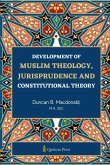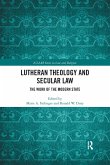"Franciscus de Victoria enumerates some grounds which would not justify recourse to arms... diversity of religion is not a sufficient reason for making war... nor the glory or interest of the prince, can justify hostilities." -Ernest Nys, De Indis et de Iure Belli Relectionis Being Part of Relectiones Theologicae (1913) De Indis et de Iure Belli Relectionis Being Part of Relectiones Theologicae (1917) originated as lectures given by Francisco de Victoria in 1532 and 1557. His students compiled the notes for its original 1696 publication in Latin. This text is a reproduction of Simon's 1696 edition, which was edited by Ernest Nys. Also included is the English translation, On the Indians Lately Discovered and On the Law of War made by the Spaniards on the Barbarians by John Pawley Bate. The importance of this text to law cannot be overstated , and readers interested in both history and law should add it to their personal collection.
Hinweis: Dieser Artikel kann nur an eine deutsche Lieferadresse ausgeliefert werden.
Hinweis: Dieser Artikel kann nur an eine deutsche Lieferadresse ausgeliefert werden.








